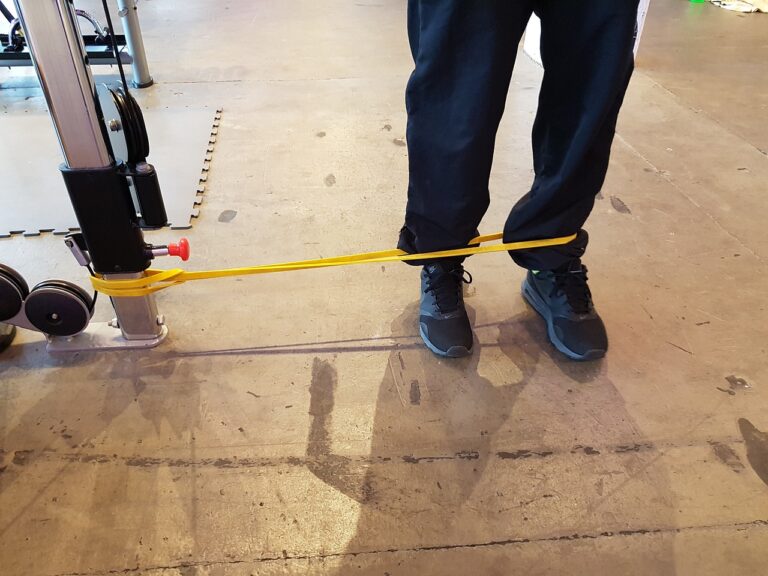Gastrointestinal Health and Wearable Technology: All pannel.com, Laser247.com, Betbook247
all pannel.com, laser247.com, betbook247: Maintaining good gastrointestinal health is essential for overall well-being. Our digestive system plays a crucial role in breaking down food, absorbing nutrients, and eliminating waste. When our gut is not functioning optimally, it can lead to a variety of health issues such as bloating, constipation, diarrhea, and even more serious conditions like irritable bowel syndrome (IBS) or inflammatory bowel disease (IBD).
Fortunately, advancements in technology have made it easier than ever to monitor and improve our gastrointestinal health. Wearable technology, in particular, has become increasingly popular for tracking various aspects of our health and wellness. From fitness trackers to smartwatches, there are now devices designed specifically to monitor our digestive health.
Gut health tracking devices can provide valuable insights into our digestive processes, helping us make informed decisions about our diet, lifestyle, and overall health. These devices can track factors such as hydration levels, food intake, stress levels, and even analyze the composition of our gut microbiome. By monitoring these key indicators, we can better understand how our gastrointestinal system is functioning and take proactive steps to improve our digestive health.
Here are some ways in which wearable technology can help support gastrointestinal health:
1. Food tracking: Many wearable devices now come equipped with food tracking features that allow users to log their meals and track their caloric intake. This can be particularly useful for individuals with digestive issues such as food sensitivities or allergies, as it can help pinpoint which foods may be triggering symptoms.
2. Hydration monitoring: Staying hydrated is essential for good gut health. Wearable devices can track your daily water intake and remind you to drink more water throughout the day, ensuring that you stay properly hydrated.
3. Stress management: Stress has a significant impact on our digestive system, often leading to symptoms such as bloating, stomach pain, and indigestion. Some wearable devices include stress tracking features that monitor your stress levels and provide recommendations for managing stress through techniques such as meditation or deep breathing exercises.
4. Activity tracking: Regular physical activity is important for maintaining a healthy gut. Wearable devices can track your daily activity levels, including steps taken, distance traveled, and calories burned. By staying active, you can improve digestion, reduce bloating, and support overall gut health.
5. Sleep monitoring: Poor sleep habits can disrupt the balance of bacteria in our gut, leading to digestive issues. Wearable devices can track your sleep patterns, including the duration and quality of your sleep, and provide insights into how your sleep habits may be impacting your gastrointestinal health.
6. Gut microbiome analysis: Some advanced wearable devices now offer the ability to analyze the composition of your gut microbiome. By understanding the types of bacteria living in your gut, you can make informed decisions about your diet and lifestyle to support a healthy gut microbiome.
FAQs
Q: How accurate are gut health tracking devices?
A: The accuracy of gut health tracking devices can vary depending on the technology used and the specific metrics being measured. It’s essential to research different devices and read reviews to ensure you are selecting a reliable and accurate device.
Q: Can wearable technology replace the advice of a healthcare professional?
A: Wearable technology can be a useful tool for monitoring and improving gastrointestinal health, but it should not replace the advice of a healthcare professional. If you have concerns about your digestive health, it’s essential to consult with a healthcare provider for personalized recommendations and treatment options.
Q: Are gut health tracking devices suitable for everyone?
A: Gut health tracking devices can be beneficial for individuals looking to monitor and improve their gastrointestinal health. However, if you have specific health conditions or concerns, it’s essential to consult with a healthcare provider before using any wearable technology to ensure it is appropriate for your individual needs.
In conclusion, wearable technology has the potential to revolutionize how we monitor and support our gastrointestinal health. By leveraging the features and insights provided by these devices, we can take proactive steps to improve our digestive health and overall well-being. Whether you are looking to track your food intake, manage stress, or analyze your gut microbiome, there is a wearable device out there to help you on your journey to optimal gut health.







